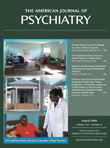Becoming an academician and sustaining a career in academia are increasingly more complex and difficult. Many entering academia today are faced with various obstacles and requirements that no one cautioned them about. For those individuals, their difficulties may start with simple issues such as how to apply for a job in the department of their choice, how to interview, or how to evaluate a contract. For those who can endure these initial issues, their problems might begin with more complex matters such as how to teach, how to prepare a basic budget, or how to get promoted. Most young academicians learn by asking their senior colleagues or from their own painful mistakes. They frequently wish that they had known certain things before they began their careers or that they had been able to find the proper guidance. Thus, putting together a roadmap or career guide-book for prospective academicians and individuals who have already started careers in academia is a worthwhile and praiseworthy initiative. Drs. Roberts and Hilty, who are both experienced academicians, assembled a group of experts in various areas of academia to provide the necessary guidance in Handbook of Career Development in Academic Psychiatry and Behavioral Sciences .
The book is divided into the following six sections (29 chapters), respectively: Getting Started, Getting There, Once You"re There, Becoming an Educator, Developing Your Academic Skills, and Continuing to Grow Professionally. The chapters cover a broad variety of topics such as strategies for academically-oriented residents in psychiatry, preparation of one"s curriculum vitae, evaluation of contract/letter of offer, reading and preparing a budget, managing one"s time, giving feedback, teaching, and helping others to learn writing and reading letters of recommendation, publishing a manuscript, serving as a manuscript reviewer, writing a first grant application, being a good mentor, networking, and taking care of oneself, among others. The chapters are structured similarly, ending with a list of "smart strategies" to handle a particular issue, list of "questions to discuss with a mentor or colleague," references, and additional resources. The book is well edited and covers almost every corner of psychiatric academia.
Most of the chapters are clear and straightforward. The authors present a wealth of mostly practical, although not always easy-to-follow, advice. I really like the suggestion that one should “avoid meetings that are not critical....So much time is wasted in unproductive, redundant and politicized agendas” (p. 90). How true and how difficult for a novice to figure out and to follow! Another set of recommendations deals with concentration, focus, sustaining projects, and generating ideas. In these sections, the authors suggest that “taking time to think is often [the] best use of your time” (p. 86). Although their point is valid, I question where one would fit in this time to think—perhaps while driving to and from work. Other useful bits of advice presented are as follows: “Be as discriminating in reading those letters (of recommendation) as you are in writing them” (p. 214) or “Schedule some extra time or deliberately put your emotions on hold for 3–5 days after returning from longer absence to forestall dysphoria.” These are just a few examples of pearls with which the book is filled.
There are a few things that I did not see in this otherwise very useful volume. I was amazed that the term international medical graduate did not make it into the book. I expected some advice or strategies for the young international medical graduates who are trying to succeed in academia in a specialty that relies heavily on them. Another issue that I would have liked to have seen in a volume such as this is “retooling” one"s academic career. What does one do when grants dry out and one would like to stay in academia? What does one do when one becomes burned out by an educational or administrative job?
After reading this book, many would probably agree that it should have been around years ago. It is filled with practical information, is well organized, and covers almost all major issues in career development in academic psychiatry. I would recommend it to every starting academician and to every resident contemplating an academic career. It should also belong to the library of every academic department of psychiatry (and perhaps other disciplines) and school of medicine, since it could serve as a guiding text in faculty development seminars and courses.

